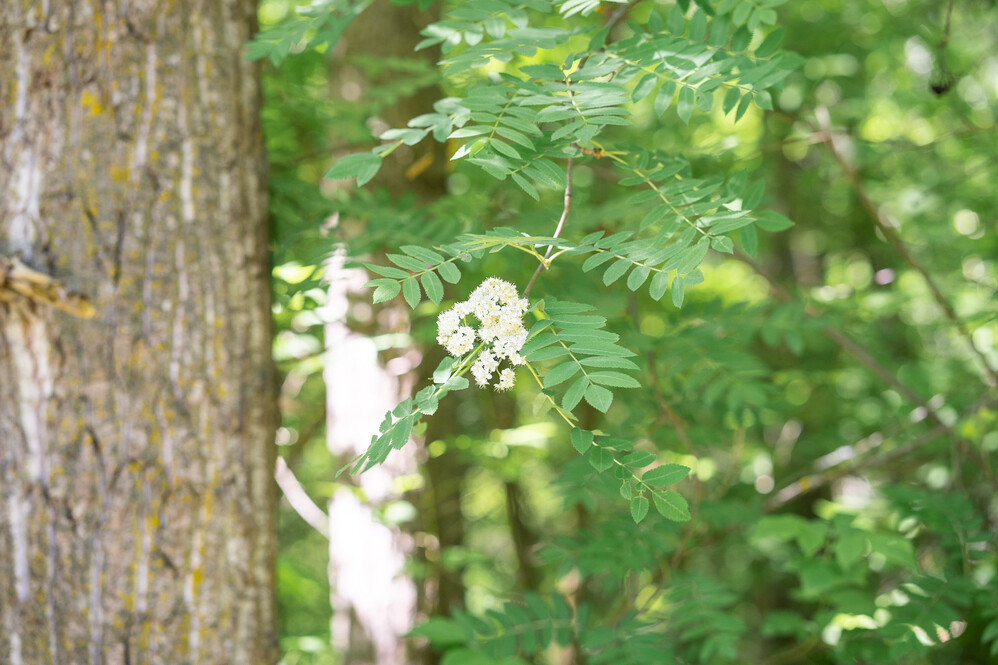ENVS Internship Update

Hey everyone,
Today I’m here to share with you one of the many great opportunities that King’s has to offer. The ENVS degree program allows students to take on a 13-week internship in their area of interest to further their learning in their degree. King's student Maria Ringma has been spending her summer taking part in this internship, and she is going to give us an insight of what it’s like.
What year/program are you in?
I am entering my fourth year of the Environmental Science Program here at King’s.
What have you been working on this summer? What does your daily routine look like?
This summer I am fulfilling the program requirement of an internship at Elk Island National Park. I was given a student position in the Resource Conservation (ResCon) branch of Parks Canada.
ResCon at Elk Island encompasses a wide variety of activities including ungulate grazing research, breeding bird surveys, and species at risk surveys, to name a few. Active management is a big part of what ResCon staff do and is also a large part of what I, as a ResCon student, do too. This includes things like human-wildlife conflict and finding the balance between the park’s assets and maintaining ecological integrity. The other ResCon students and I have been tasked with creating a study on the rate of use of grasslands by ungulate populations in the park. Our study is a pilot study for a larger study that the ResCon staff hope to begin next year to determine whether ungulates are low, medium, high, or over grazing grasslands in the park. I have also begun a little study on Western Toads (WETO) in the park. WETOs are listed as Special Concern by COSEWIC. They are known to call in the park and have been recorded using ARUs (Autonomous Recording Unit). The ARU data is used to determine which locations in the park likely have WETOs and which likely do not. Now, I am visiting the sites that had WETO call hits and checking for egg masses and tadpoles. The goal is to determine if the sites at which WETOs are calling are the locations at which they are actually laying eggs. Needless to say, there is never a dull moment in the park and every day brings something new. My daily routine is constantly changing, what stays consistent is that I am working in the field pretty much all day!
What would you say is the most difficult part of the job?
The most difficult part of the job for me is the fact that I have to drive 40-45 minutes to travel to and from work. I struggle with this because I am very mindful of my ecological and carbon footprints, driving this distance has significantly increased my personal footprint which saddens me.
What do you like most about this internship position?
There are so many things that I love about this internship position, it is difficult to narrow it down to just one. One of the things that I am really enjoying is the constant exposure to real-time active management decision making and actions. The staff at the park are all so kind and are very intentional about passing on the knowledge that they hold which I really appreciate. I also love working outside getting to experience Creation all around me.
How has this internship contributed to your program? What are some skills that you have learned?
This internship has allowed me to draw together key course concepts from the past three years and see the bigger picture that the ENVS program is painting. I have learned how to identify bird species, the biological sex and age of ungulates, and invasive plant species. I have learned how to use new computer programs including Event Finder and Song Scope. I have also gained important field experience and connections with my co-workers.
Do you have any advice on students who plan to do an internship?
My advice for someone looking to get an internship would be to do some research and familiarize yourself with the company/institution before your interview. Knowing about some of the projects and history of the company/institution can be really helpful in an interview situation. A second piece of advice would be to apply to positions even of you think you might not be fully qualified for the position.
There you have it. I’d like to give a special thanks to Maria for sharing about the project she’s been working on this summer with us. If you’d like to learn more about other opportunities here at King’s, please feel free to reach out!
All the best,
Erykca
Leave A Comment